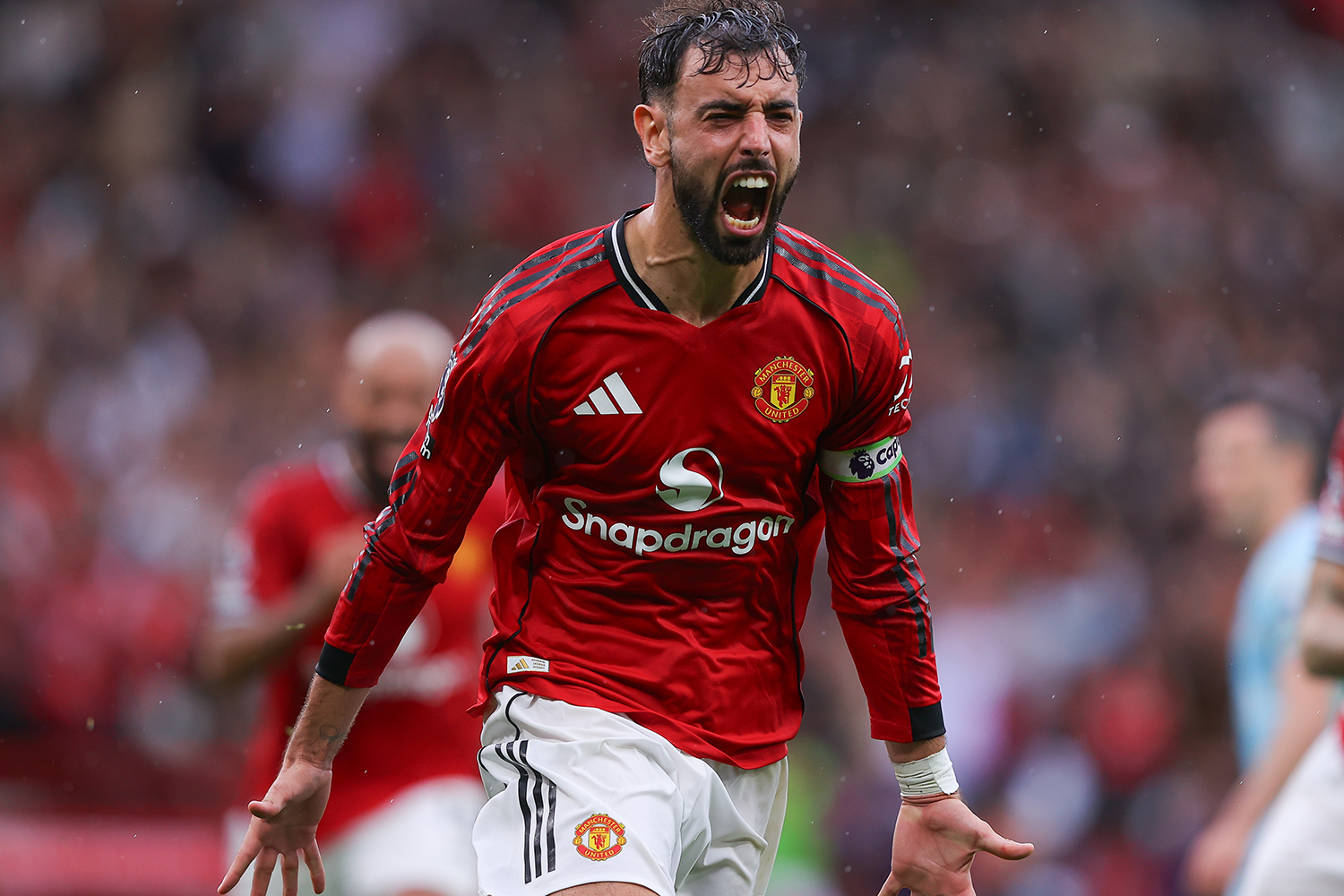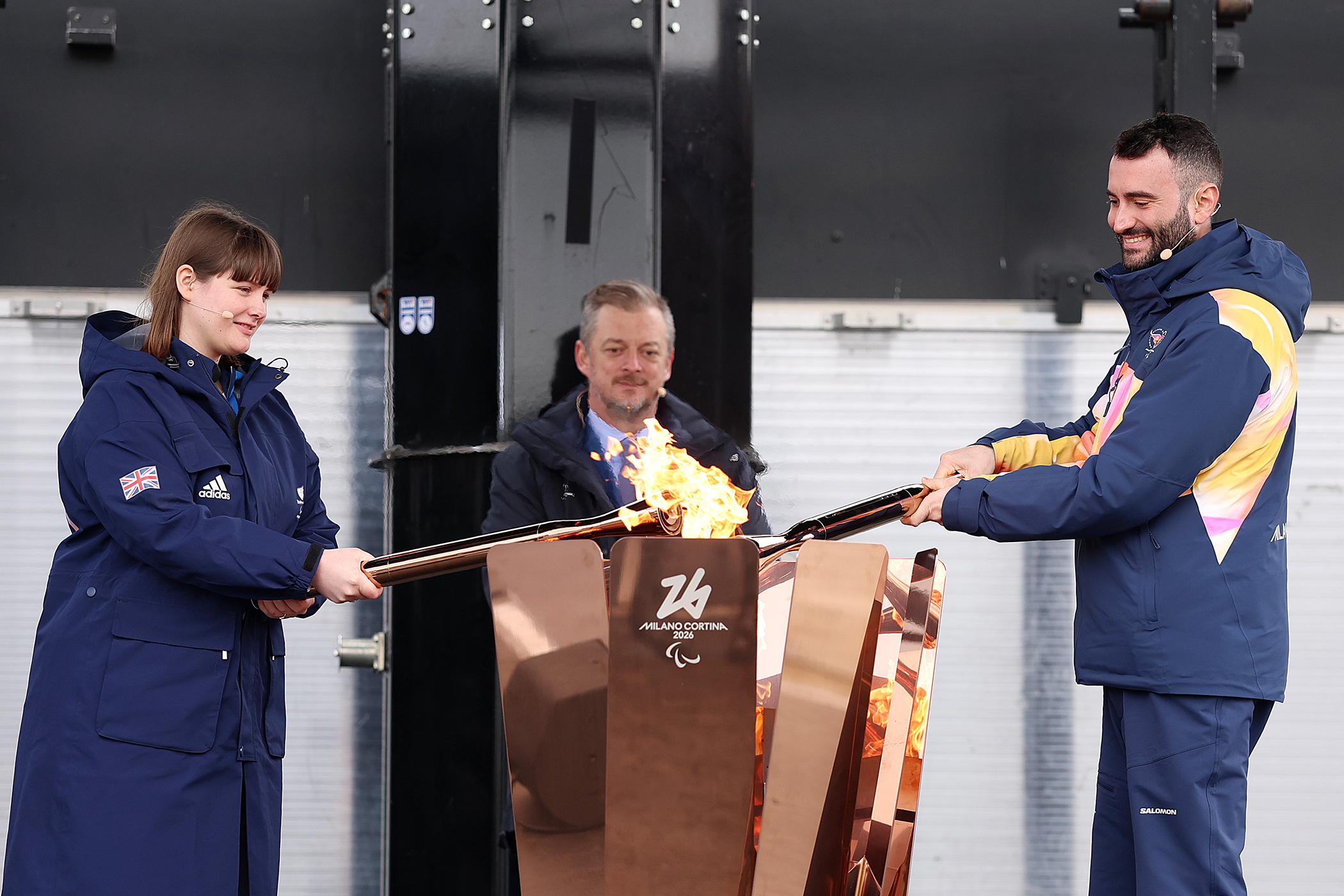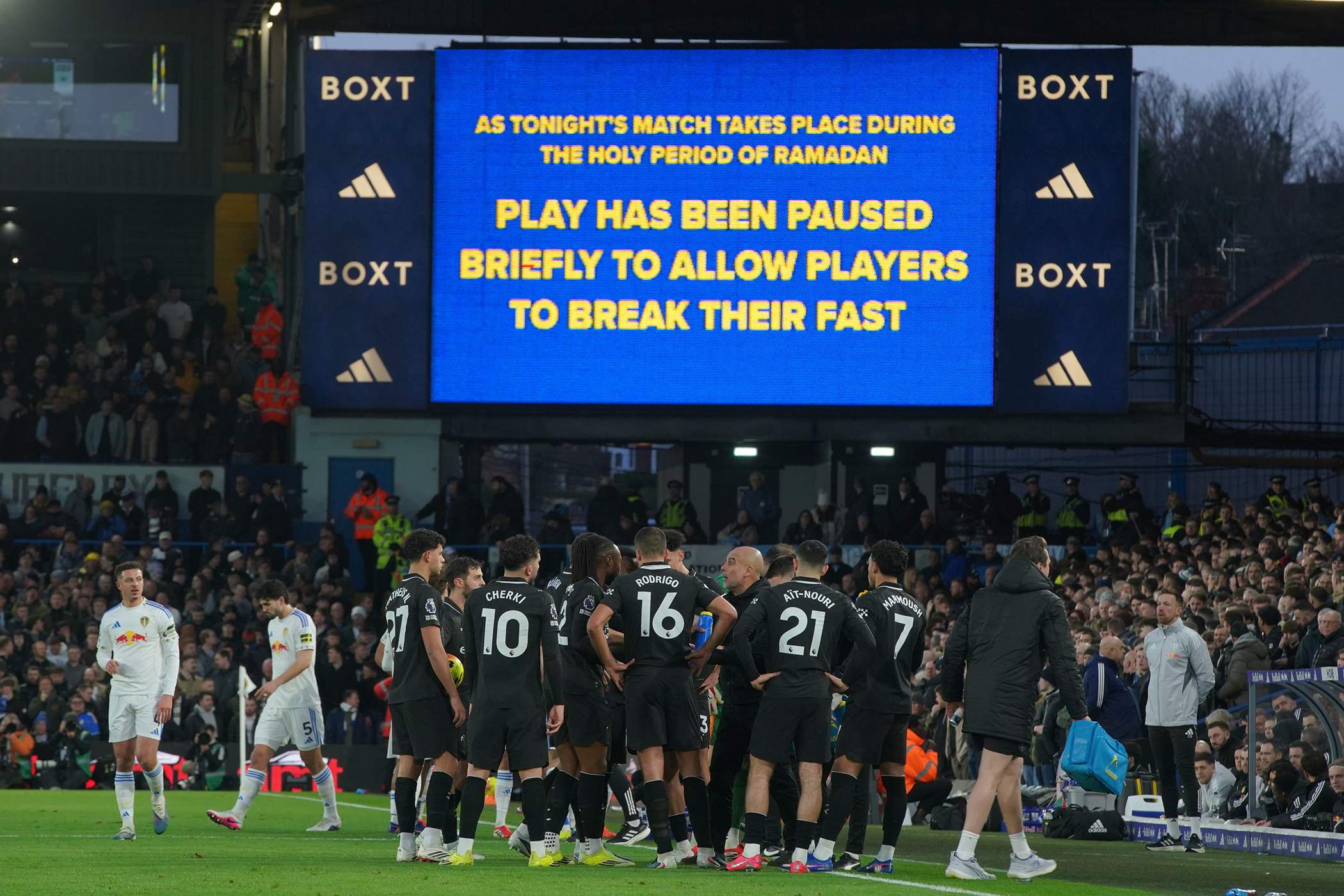And so round and round and round go Manchester United, once again trudging along their endless doom loop between fading twilight and false dawn. They have lived this week before, a thousand times in the past 10 years, its details always different but its rhythms now painfully familiar: the embarrassment, the excuses, the talk of crisis, the call to arms, the glimmer of hope, the reason to believe.
Repeated exposure has an analgesic effect, of course, but even by United’s reduced standards, this has been especially humbling. It was not just that they lost at Grimsby Town – of the fourth tier, we have been repeatedly informed, the anachronism deployed for effect – in the Carabao Cup, but the iconography of their defeat: Ruben Amorim in the pouring rain, rearranging the deckchairs on his scale model of the Titanic; the sight of the manager of Manchester United, apparently unable to watch his team take part in a penalty shootout; the revelation, met with much hilarity, that United had asked Grimsby for details of the manager’s dressing room, taken as the most damning evidence of the softness, the vanity, the indulgence that has festered at Old Trafford.
Amorim said in the immediate aftermath of that humiliation that his players’ performance “spoke very loud” about what they wanted, who they were; most read it as a hint that perhaps he understood that they no longer believed in his mission. A couple of days later, he said there were times he “wanted to quit” and times when he wanted to “stay for 20 years”.
Everything, at that point, seemed to be unravelling. The ongoing travails of Manchester United are the story that keeps on giving; there is, it would appear, an apparently bottomless appetite among the Premier League’s global audience for picking apart the fall of a colossus. United fans want to know what is going wrong. Everyone else cannot resist just a little bit of rubber-necking.
It was hard, certainly, to see how Amorim might recover from it. He spoke of getting through the visit of Burnley, making it to the international break, and then finding the time and space to “think things through”. Things just kept getting worse. Alejandro Garnacho had been sold and Rasmus Højlund was about to be; Kobbie Mainoo, only a year or so after he started in the final of the European Championship for England, had asked to be allowed to leave on loan in search of regular football. There were dark whispers that his attitude is not what it might be, just as Garnacho's had been, and Marcus Rashford's, and Paul Pogba's and Jesse Lingard's. There does seem to be something about Old Trafford that brings out the worst in players.
The humane interpretation of all of this that it would be in everyone’s best interests if some mutual accord was reached, one that allowed Amorim to leave with at least a few scraps of his dignity, his torment at an end.
It has, after all, become increasingly uncomfortable to watch him toil and flail to try to make sense of Manchester United; he is too young, too charismatic, too personable to look so utterly, so wretchedly lost. Louis van Gaal and José Mourinho were old enough, tough enough, to tolerate it. Amorim, like Ole Gunnar Solskjaer and Erik ten Hag before him, seems more than anything like a victim. His public statements are ambiguous at best; he often has the air of a man who would not be too upset to discover he had a few months off.
But Manchester United do not let go that easily. The club have, for a decade, been engaged in an increasingly desperate search for signs, conditioned to see every single cloud as an opportunity to locate a silver lining, not just by the fans’ thirst for a return to how things used to be but by the comment industrial complex that has sprung up around the institution, one that encompasses many of their former players and is largely dependent on keeping enough eyeballs on United at all times that the clicks keep coming. There is money in making sure people believe.
And so the week ended as it was always going to end, with an entirely unconvincing win against Burnley, with fans streaming out of Old Trafford in high spirits, wondering if perhaps this could be the start of something. Amorim is not stupid; he did not take up the invitation to describe a slender victory against a team expected to be battling relegation as a turning point. “Day by day,” he said; he has been here for less than a year, but he knows how this goes.
There will be plenty out there, though, who are far less cautious. Mason Mount seemed inspired, energised in midfield – could that be something? Matheus Cunha and Amad Diallo are developing an understanding – how about that? Perhaps Bruno Fernandes scoring that penalty, pumping his fists and screaming into the night will finally inspire the players to live up to the standards they expect around here; maybe Grimsby is exactly what they needed to shock them into a response.
Newsletters
Choose the newsletters you want to receive
View more
For information about how The Observer protects your data, read our Privacy Policy
Or, worst comes to worst, maybe something will occur to Amorim during the international break, some flash of inspiration that brings everything together. Yes, maybe that’s it. This is a good chance to reset. It might only be three games into the season, but still. And so round and round and round go Manchester United, caught in this endless doom loop, where the light is always fading but there is never any shortage of a false dawn.
Photograph by James Gill – Danehouse/Getty Images



